Maacah 4: Midrash and Aggadah
The Midrash and Aggadah regarding Maacah, daughter of Abishalom, who worshiped an idol, focuses mostly on her pagan worship of Asherah.
Maacah the wife of David: Midrash and Aggadah
Macaah, the wife of David, is a name for a non-Jewish woman taken captive during wartime to be a wife to her Israelite captor. Absalom, the son of Maacah and King David, grows up to be defiant and self-indulgent and acts against his father; this is attributed to him being the son of Maacah.
Maacah: Bible
It is claimed that Maacah is the mother of Asa, king of Judah from 908 to 867 B.C.E., which is problematic because the same woman is alleged to be the mother of Asa’s father. Maacah’s role appears most clearly as an official functionary in the Judean cult when Asa removes her from her position as gebirah (“great lady”) after she makes a cult object associated with the goddess Asherah.
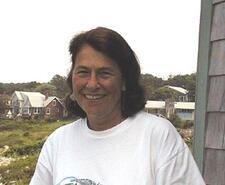
Sally Mack
Madame d'Ora
Madame d’Ora’s vibrant portraits of twentieth-century artists and intellectuals remain important testaments to European cultural life at the turn of the century and beyond. D’Ora was the first woman accepted by the Association of Austrian photographers, and one of the first photographers to focus on modern dance and fashion. She paved the way for many Jewish female photographers to find success.

Mary Ann Cohen Magnin
Until her death, Mary Ann Cohen Magnin took an active interest in the department store she founded, I. Magnin and Company, an exclusive chain that specialized in women’s clothing. Energetic, stubborn, and with an outstanding intuition for business, Magnin rose to stunning success at the turn of the twentieth century.

Kate Magnus
Kate Emanuel Magnus (1844-1924) was an educator and writer best known for her Outlines of Jewish History, first published in 1885 and remaining in print for decades. Raised to the peerage when her husband, Philip Magnus, was knighted in 1886 for his work in reforming national education, they were among the first Jewish peers. She devoted the rest of her life to writing and social responsibility.
Mahalath, daughter of Ishmael: Midrash and Aggadah
Midrash and Aggadah present both a positive and a negative take on the marriage of Esau, son of Isaac and Rebekah, to Mahalath, daughter of Ishmael.

Yeshivat Maharat
Founded by Rabba Sara Hurwitz and Rabbi Avi Weiss, Yeshivat Maharat is the first Orthodox rabbinical school to ordain women. Building upon expanding education and ritual roles for Orthodox women in America that began in the late twentieth century, themselves outgrowths of American feminism, as of 2021 Yeshivat Maharat had graduated over forty women who powerfully impact Orthodox and wider Jewish communities all over the world.
Margaret Mahler
Margaret Schönberger Mahler was a pioneering child analyst in the early twentieth century. She became a leading authority on the mother-child relationship and the separation-individuation process, which she examined in her best-known work, The Psychological Birth of the Human Infant.

Vivian Maier
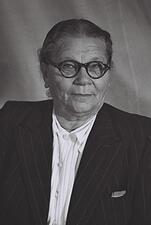
Ada Maimon (Fishman)
Maimonides
Maimonides, referred to by the acronym Rambam, was a medieval Sephardic Jewish sage who studied medicine and practiced as a physician throughout his lifetime. His legal and philosophical writings made him one of the greatest and most widely read medieval Jewish philosophers.
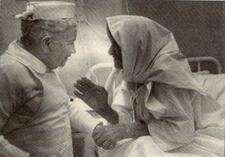
Selma Mair
Selma Mair was a German-born registered nurse who brought her education and devotion to the role of head nurse at the Sha’arei Zedek hospital in Jerusalem.

Hannah Maisel-Shohat
Combining her zeal for the Zionist movement and her extensive education in agriculture, Hannah Maisel-Shohat dedicated herself to the establishment of women’s farms and agriculture education programs in Palestine in the 1920s.

Judith Malina
Judith Malina was an actress, director, and producer who dedicated her life to creating avant-garde, politically charged theater works, and activism. She co-founded the experimental Living Theatre company with her husband; was involved in the antiwar movement, Women Strike for Peace, and the Industrial Workers of the World; and won many honors and awards for her acting and directing work.

Sarah Malkhin
Sarah Malkhin was among the first women agricultural laborers to arrive in Palestine during the the Second Aliyah. Through efforts to establish new kinds of agricultural settlements founded on ideals of emancipation and independence, Malkhin and her colleagues clashed with veteran settlers of the Old Yishuv.
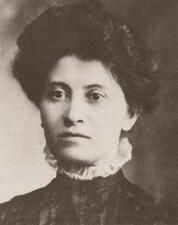
Theresa Serber Malkiel
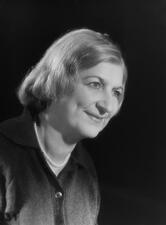
Clara Malraux
Journalist, essayist, novelist, and translator Clara Malraux spent her early life involved with antifascist activities and joined the French Resistance during World War II while in hiding with her daughter. Her work often describes her attempts to make a place for herself in a misogynistic and antisemitic society.

Lane Bryant Malsin
Judith Pinta Mandelbaum
Judith Pinta Mandelbaum was an important part of the Mizrachi Women’s Organization of America (American Mizrachi Women) from the 1930s until shortly before her death in 1977, by which time the organization was known as AMIT. She also achieved professional acclaim as an outstanding teacher and is remembered fondly as a woman with a wonderful sense of humor and a rich family life.
Emma B. Mandl
Emma B. Mandl immigrated to the United States at age fifteen and helped found the Baron Hirsch Women’s Club, a major Chicago philanthropic organization. Through the club, where she served as president, Mandl created and led vital institutions for Jewish East European immigrants in Chicago, from orphanages to trade schools to tuberculosis wards.
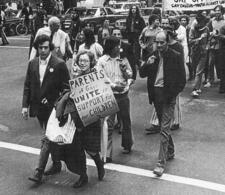
Jeanne Manford
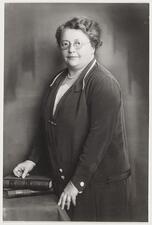
Rosa Manus
Rosa Manus was a Dutch leader in international women’s movements for suffrage and equality, as well as a vocal pacifist before and during World War II. As a Jew, she at times clashed with other feminist leaders.



